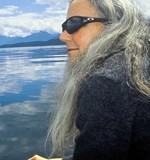Read this story from FIS (Fish Information & Services trade publication), reporting that the Canadian Food Inspection Agency has quarantined a salmon farm off the coast of Newfoundland due to a suspected outbreak of the deadly Infectious Salmon Anemia virus. (July 6, 2012)
The Canadian Food Inspection Agency (CFIA) has quarantined an fish farm on the south coast of Newfoundland due to a suspected outbreak of infectious salmon anaemia (ISA).
Newfoundland and Labrador veterinarians detected the virus during routine testing at the site, explained Miranda Pryor, the executive director of the NL Aquaculture Industry Association.
“In the ocean, there’s a lot of naturally occurring viruses and bacteria and other things that can impact our farming situations,” said Prior, CBC News reports. “And unfortunately, it appears that this may be the case at this site right now, maybe impacted by something it caught from the wild.”
While ISA is harmless to humans, it can kill up to 90 per cent of the salmon it infects, depending on the strain.
Prior added that the aquaculture pen suspected of containing infected fish has been quarantined to minimise the risk of spreading the virus throughout the facility.
This is the first time a fish farm has been quarantined in Newfoundland and Labrador, she highlighted.
CFIA has taken samples that it will hand over to the Department of Fisheries and Oceans (DFO) for testing. Obtaining these test results could take weeks. If ISA is confirmed, CFIA may take further action to obstruct a possible outbreak.
Although the agency is refusing at this time to release the name of the company that runs the quarantined facility, Cooke Aquaculture assures it is not one of its sites.
Two weeks ago, evidence of another outbreak of ISA was found at Cooke Aquaculture’s fish farms in Nova Scotia which CFIA has been investigating. The company documented many cases of ISA and engaged in the killing of affected fish; affected facilities were put under quarantine until all fish were removed from the site and all pens, cages and equipment were cleaned and disinfected.
In May, CFIA quarantined a third salmon farm in the province of British Columbia in just two weeks over fears about the presence of haematopoietic necrosis virus (IHN).
Read original article: http://www.fis.com/fis/worldnews/worldnews.asp?monthyear=&day=6&id=53635&l=e&special=&ndb=1%20target=



